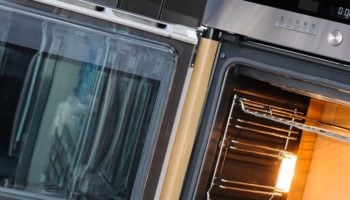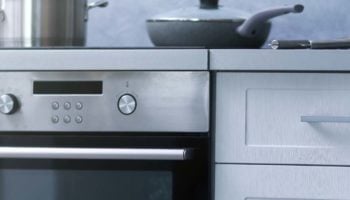Few things are scarier than noticing your oven is constantly climbing temps with no signs of stopping. The good news is you can do a few things to help fix the issue as long as you know where to look.
If your oven is always overheating, you must first give it a full deep clean – especially around the heating element. Use an oven-proof thermostat to check if the temperature is still going too high. If the temperature is, in fact, too high, you may need to replace the temperature sensor or heating element.
I know it all sounds a little complicated, but don’t worry – I’ll guide you through every step of the way.
Ready? Let’s go!
Why trust us? This article was written by Craig Anderson and James Blackford.
Craig has helped thousands of other homeowners repair their appliances since 2016.
James is one of our resident appliance experts with over 16 years of experience. He currently works as a Master Technician for SquareTrade, and runs his own appliance repair business.
Before We Get Started
It’s worth grabbing a full kit of cleaning supplies, a screwdriver, and, ideally, an oven-proof thermometer to test the temperature. If you’re feeling brave and willing to replace parts yourself, picking up some new parts may be necessary.
Checking your User Manual can greatly help, so ensure you have it with you. If you don’t have your User Manual handy, feel free to use our resource below to learn how to find it.
Fixing an Oven That Keeps Getting Hotter
While there are many ways to fix an oven that keeps getting hotter and hotter, some elements are more likely to be causing the issue than others. Here’s what I usually recommend checking first.
#1 Deep Clean The Oven
Deep cleaning can make a night and day difference when your oven is overheating. As you cook batch after batch of delicious food, grease accumulates in the oven’s walls, door frame, and virtually everywhere else.
Excess grease in your oven can begin to leak and, more importantly, interfere with how your oven’s sensor detects the appliance’s internal temperature.
To ensure your oven’s sensor measures temperature accurately, my usual advice is to clean the appliance at least once monthly.
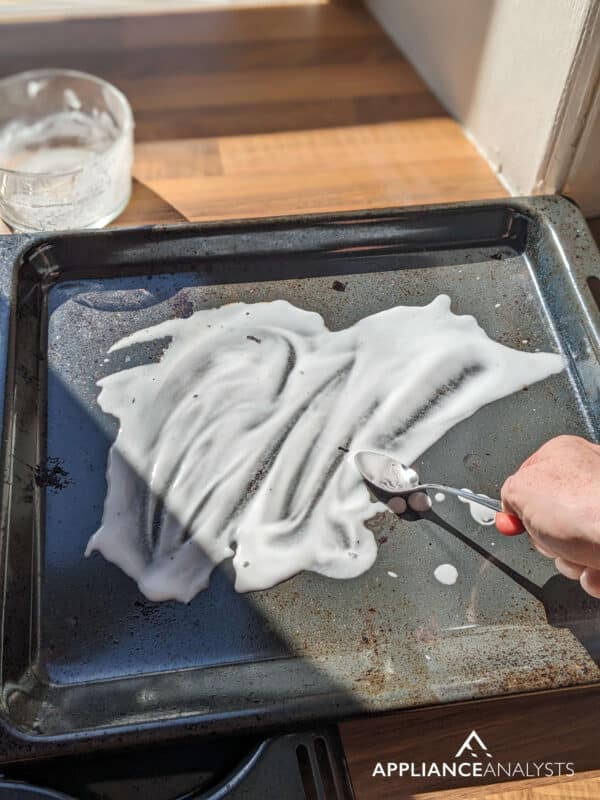
#2 Check the Power Board Relay Switch
Another possible reason why your oven is overheating is a faulty power board relay switch. Modern ovens have different parts called “elements,” designed to do different things, such as baking and broiling.
While cooking, the different elements are cycled on and off by relay switches receiving orders from the oven’s power board. However, when the relay switches go bad, the elements won’t be cycled off, and they’ll continue to get increasingly hotter.
Depending on your oven brand and model, you might only have one board controlling everything or two separate ones. Freestanding ovens, for example, only have one board, and luckily, testing and addressing any issues with the board is very simple.
- Turn your kitchen’s breaker off to kill electricity in your oven.
- Carefully pull the oven out if it’s inside a cabinet or a reduced space.
- Undo the screws holding the top/back panels of the oven in place and carefully remove the panels.
- Look for the wire connecting the board to the rest of the oven and follow it to the source.
- Use a multimeter and test for continuity. If there’s none, then the board is faulty and needs replacing.
From what I’ve seen over the years, control boards range from $80-$550, depending on the oven you own.
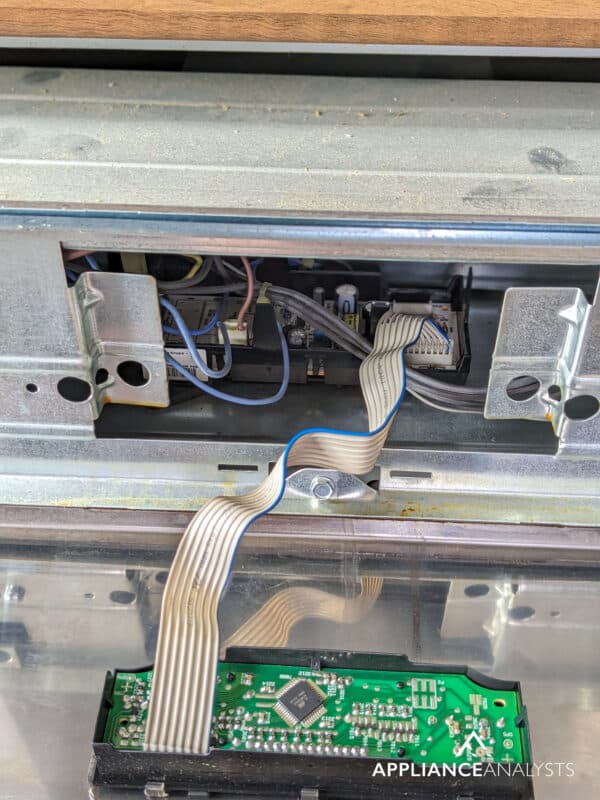
If you want to get any replacement part – or see how much one would cost – click to enter your model number in the search bar below. Our partners at AppliancePartsPros stock almost every part with free guides on how to install them.

#3 Check your Temperature Sensor
To determine the right temperature regulation, your oven has a temperature sensor inside it. If the sensor knows the oven isn’t hot enough, it will tell the rest of the oven to continue emitting heat until it reaches the desired temperature.
A sensor will cut off the heat if it picks up a hotter temperature than what you’ve set and will wait to turn back on when the temperatures drop below your settings.
Realistically, your oven doesn’t stay at the same temperature when it’s on because it’s constantly putting out heat or peeling back to reach the ideal temperature.
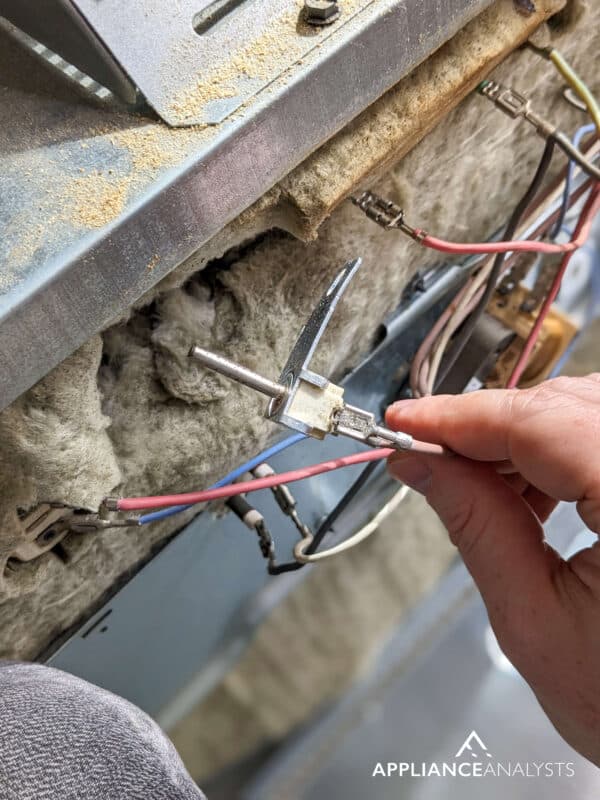
A faulty sensor can cause your oven to get extra hot without you even realizing it. If the sensor isn’t picking up the right temperatures, it won’t know when to regulate your oven properly.
The sensor might think it’s 350 degrees inside your oven when in reality, it’s more like 800 degrees. There is no gauge to tell you what the actual temperature inside the oven is compared to the temperature you’ve set.
To fix the problem, consult your owner’s manual to see the exact resistance your temperature sensor should have. Unplug the oven, then use a multimeter to see if the same resistance is coming from the temperature sensor.
#4 Check the Control Thermostat
If your oven keeps overheating, there’s a good chance that the control thermostat is acting up. In a nutshell, the thermostat allows you to dial in a certain temperature, telling the heating elements to raise the heat until said temperature is reached.
The control thermostat isn’t as likely to malfunction as the sensor, so make sure you try the step above before taking a close look at your control thermostat. To check and see if a bad thermostat is the source of the issue, use a multimeter to test for continuity.
Some ovens have a small screw on the back of the control thermostat that allows you to recalibrate the temperature as much as 50 degrees!
#5 Check the Cooling Fan
An oven cooling fan is a device that provides continuous airflow to help cool the inside of an oven. When the heat is on, your cooling fan will help distribute the heat evenly in your oven.
The fan is also responsible for cooling down the oven when it’s turned off and helping to keep the electrical components cool. Some ovens have a built-in cooling fan, while others have an external unit that can be plugged in to provide airflow.
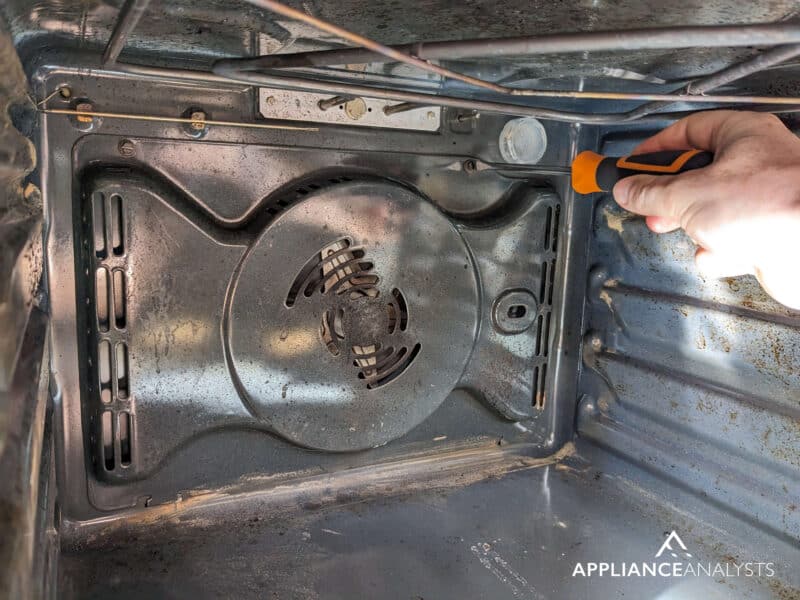
Fan motors are usually one of the first components to malfunction. The motors might be worn out or not receiving power from the power supply.
When your fan isn’t working, the components in your oven won’t work properly because their temperatures aren’t regulated, causing your oven to overheat.
Can Electric and Gas Ovens Overheat?
Electric and gas ovens have most of the same components when it comes to regulating temperatures. Both oven types typically have a temperature sensor, a control thermostat, and a cooling fan.
The only real difference is how the oven heats up. Instead of having a heating element that produces all the extreme temperatures, a gas oven runs on… you guessed it, gas.
A small pipe runs through the bottom of your oven, and when the oven is turned on, gas will shoot up through the small holes, and an igniter will turn the gas into fire with one spark.
When a gas oven overheats, it usually means miscommunication between your igniter, gas, and temperature sensors.
Conclusion
That about covers it!
When your oven is overheating, it’s completely normal to feel worried about your safety and frustrated that you might never be able to cook food again without burning it.
Luckily, as I hope this piece has helped you better understand, addressing the most common causes behind an oven that’s overheating is easy. In most cases, simple actions, like cleaning the oven frequently and using a multimeter to test internal components, will do the trick.
Thanks for reading. If this article piqued your interest and was useful, please consider checking out our other incredible resources below and subscribing to our newsletter.
Happy cooking!
-Craig.
Frequently Asked Questions
How Do I Know If My Oven Temperature Sensor Is Bad?
You’ll need a multimeter to test your oven temperature sensor. The multimeter can read the continuity of your appliance’s parts to see if electricity can still flow through the sensor.
You’ll need to look in your owner’s manual to see what reading you should be checking for so that when you use the multimeter, you can tell if the sensor is within an accurate range.
Do Ovens Turn Off if They Overheat?
If there are ventilation problems with your oven, i.e., restricted or blocked airflow, then your oven could turn off from overheating.
Also, if the overheating causes your electrical components to fry, your oven will be too damaged to continue working properly.







